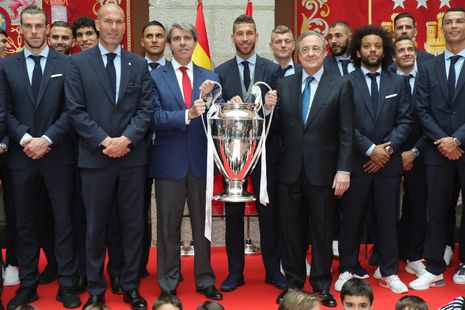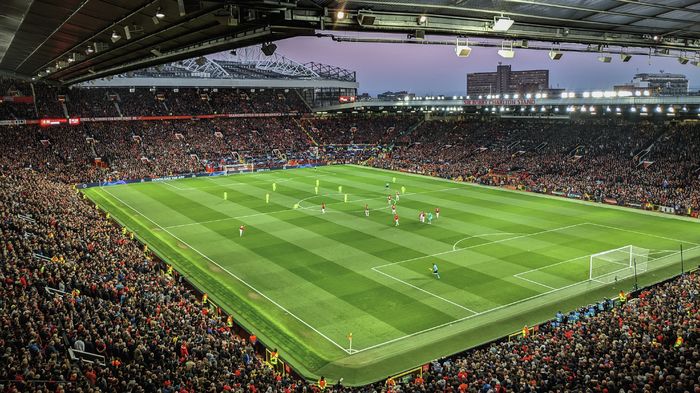Is European Football Fair?
Taking a comparative look between Europe and America, Rishi Sharma analyses the fairness of the European system of football.

There is a clear problem with competitiveness in modern European football. And it stems from the structure of the European league system – a system which heaps rewards on winners and severely punishes losers. If you look at the previous decade in most European football leagues, you will find one thing in common. With the notable exception of England’s Premier League, the vast majority of these leagues are utterly dominated by either one, two or three clubs. The last nine seasons of Italy’s first division, Serie A, have all been won by the same team: Juventus. There is a similar story in France (with Paris Saint-Germain), Germany (with Bayern Munich), and Spain (with Real Madrid and Barcelona).
The appeal of sport lies in its unpredictability. When previously-middling club Leicester City won the Premier League in 2016, it was deemed a miracle of modern-day football. Shock wins like these are so rare because, over the last decade, many European leagues have become little more than a victory march for the top teams. These monopolies exist despite the fact that the actual squads of players change over time. Out of the 2012 Juventus squad of 25 players, only 3 (Buffon, Chiellini and Bonucci) were still in the team in 2021. The question then becomes: how have Juventus kept winning? The answer lies in the positive feedback loops that European football is built on.
“...over the last decade, many European leagues have become little more than a victory march for the top teams.”
A positive feedback loop is where change in one direction increases change in the same direction. In football, this means teams who win are likely to keep on winning simply due to the fact that they are winning. They attract the best talent, biggest sponsorships, get more cash from TV rights (matches featuring top teams are much more likely to be televised), are more likely to be invested in by billionaire owners, and might receive an additional funding boost from playing in the Champions League (the lucrative cup competition featuring clubs from several top European leagues).
Meanwhile, the fate which awaits teams at the bottom is usually relegation to the nation’s second division. The consequences of this are disastrous. The team’s best players, looking to play in the top division, leave in droves. TV studios tend not to cover as much lower-league football, which provides another massive loss in revenue. Owners, failing to see a return on their investment, may become reluctant to put more money into the club. As the club’s brand dries up, so will sponsorships.
Several leagues have tried to introduce measures to help relegated teams; England has ‘Parachute Payments’, whereby a large sum is paid out to them in order to make up for TV rights money. This, however, creates several ‘yo-yo clubs’ who are far too good for the second division yet not good enough for the first division. As a result, they are often promoted to the Premier League, only to be relegated the next year, and so on. Replacing a positive feedback loop with a negative feedback loop has helped these clubs survive financially but has made it all the more difficult for those below them to achieve success.
“In football, this means teams who win are likely to keep on winning simply due to the fact that they are winning.”
A worse fate usually awaits clubs which chase success at all costs. Every so often, middling sides are taken over by enthusiastic owners who pour money into the club in search of glory. Portsmouth, for example, won England’s FA Cup competition in 2008 with a team of stars, only to be plunged into debt. Suffering a catastrophic collapse, they now languish in the third division of English football. Shortly after Portsmouth entered financial administration, legislation called Financial Fair Play (FFP), was devised by European football’s governing body, UEFA, to prevent this from happening again. Clubs now have to be careful not to spend more than they earn, or risk sanctions. FFP has helped prevent more Portsmouth stories, but also has had the effect of fossilising the European pecking order even further. The first year of Juventus’s ongoing championship streak was also the first year in which FFP restrictions were implemented.
This phenomenon of prolonged dominance is mostly absent from franchise competitions such as the NFL (American football) and NBA (basketball) in the United States. This is partly because European football is played between autonomous clubs, whereas all teams in the NFL and NBA are franchises of the league itself, with no promotion or relegation. Because league executives have more power over franchises than they do over clubs, they can introduce measures like an upper limit on player salaries and can also compensate low-performing teams with top selections in the following year’s draft of new players, allowing them priority access to the best upcoming talent.
The draft is another negative feedback loop, giving a boost to franchises who do badly. This doesn’t prevent top franchises from recruiting established stars and assembling great teams. But it does provide the others with an opportunity to develop a star team of their own in a few years’ time. And, unlike parachute payments, it doesn’t create a buffer of yo-yo clubs.
However, completely replacing the historic European league system with a closed American franchise system is a bad idea for many reasons. The NFL and NBA only have 32 and 30 teams each, for instance, whilst the English Football League has 92 (not counting the hundreds of non-league clubs which exist below it), so different divisions are needed. Introducing a draft would also mean getting rid of the well-established and highly successful academy systems which owners have spent millions setting up.
Despite this, European leagues would do well to learn lessons from their counterparts across the pond. And elite teams have never been against radical reform when it happens to suit them financially or competitively. In 2020, several big English clubs floated, unsuccessfully, ‘Project Big Picture’, which would see voting power in the currently democratic Premier League consolidated in the ‘established’ clubs. There have also been murmurs of elite European sides planning to break away from their national leagues to form a ‘European Super League’, guaranteeing more cash for these clubs – at the expense of smaller ones – due to TV deals. Teams who have the money, power and success clearly want to keep it, and if leagues let them, the problem of competitiveness in European football will only get worse. Soon, the best will truly be separate from the rest.
 News / Cambridge academics sign open letter criticising research funding changes22 February 2026
News / Cambridge academics sign open letter criticising research funding changes22 February 2026 News / Student and union protesters hold ‘Trans Liberation Solidarity Rally’ 24 February 2026
News / Student and union protesters hold ‘Trans Liberation Solidarity Rally’ 24 February 2026 News / Union speakers condemn ‘hateful’ Katie Hopkins speech14 February 2026
News / Union speakers condemn ‘hateful’ Katie Hopkins speech14 February 2026 Features / Beyond the porters’ lodge: is life better outside college?24 February 2026
Features / Beyond the porters’ lodge: is life better outside college?24 February 2026 Theatre / Footlights Spring Revue? Don’t Mind if I Do!25 February 2026
Theatre / Footlights Spring Revue? Don’t Mind if I Do!25 February 2026








